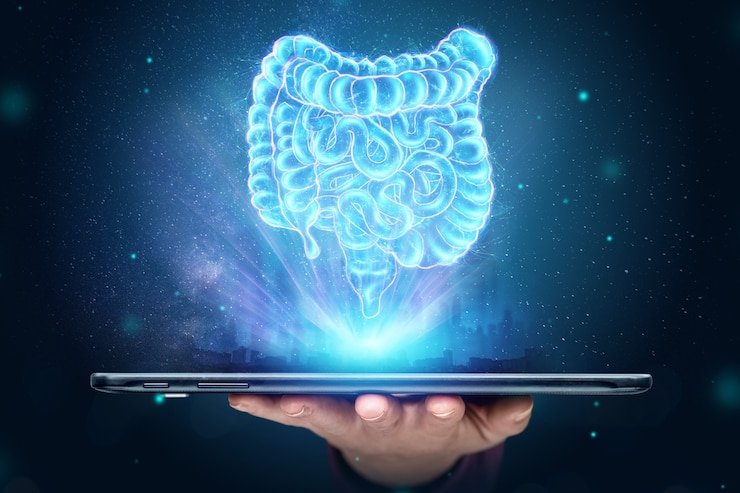In the intricate web of the human body, there exists a vital link between intestinal health and overall well-being. The gut, often referred to as the “second brain,” plays a crucial role not only in digestion but also in influencing various aspects of physical and mental health. Understanding this connection sheds light on the importance of maintaining a healthy gut for overall wellness. To Know More About It Please Click Here The gastrointestinal tract, comprising the stomach, small intestine, and large intestine, is responsible for digesting food, absorbing nutrients, and eliminating waste. Within this system lies a complex ecosystem of microorganisms known as the gut microbiota, which play a pivotal role in maintaining intestinal health. The gut microbiota, composed of trillions of bacteria, fungi, and viruses, contribute to digestion, nutrient absorption, and immune function. They also produce essential vitamins and short-chain fatty acids, which help regulate metabolism and inflammation. Moreover, emerging research suggests that gut microbiota may influence mental health and cognitive function through the gut-brain axis, a bidirectional communication pathway between the gut and the brain. When the balance of gut microbiota is disrupted, it can lead to gastrointestinal disorders such as irritable bowel syndrome (IBS), inflammatory bowel disease (IBD), and gastroesophageal reflux disease (GERD). Moreover, imbalances in the gut microbiota have been linked to a myriad of other health conditions, including obesity, diabetes, autoimmune diseases, and even mental health disorders such as depression and anxiety. Maintaining a healthy gut involves adopting lifestyle habits that promote intestinal health. A balanced diet rich in fiber, fruits, vegetables, and probiotic-rich foods such as yogurt, kefir, and fermented vegetables can nourish the gut microbiota and support digestion. Avoiding processed foods, excessive sugar, and artificial additives can help prevent disruption to the gut microbiota. Regular physical activity also benefits intestinal health by promoting bowel regularity and reducing inflammation. Managing stress through relaxation techniques such as meditation, deep breathing, and yoga can help modulate the gut-brain axis and alleviate gastrointestinal symptoms associated with stress. Furthermore, probiotic supplements containing beneficial bacteria strains can be beneficial for restoring gut microbiota balance, especially after antibiotic treatment or during times of gastrointestinal distress. Prebiotics, which are non-digestible fibers that feed beneficial gut bacteria, can also be incorporated into the diet to support gut health. To Know More About It Please Click Here for the conclusion the gut connection is a crucial aspect of overall well-being, influencing not only digestion but also immune function, metabolism, and mental health. Maintaining a healthy gut ecosystem through diet, lifestyle, and targeted interventions can support intestinal health and promote optimal wellness. By nurturing the gut, individuals can enhance their resilience, vitality, and quality of life.
Dr Alokit Gulati Best Gastroenterologist in Rohini 91 9319137179


